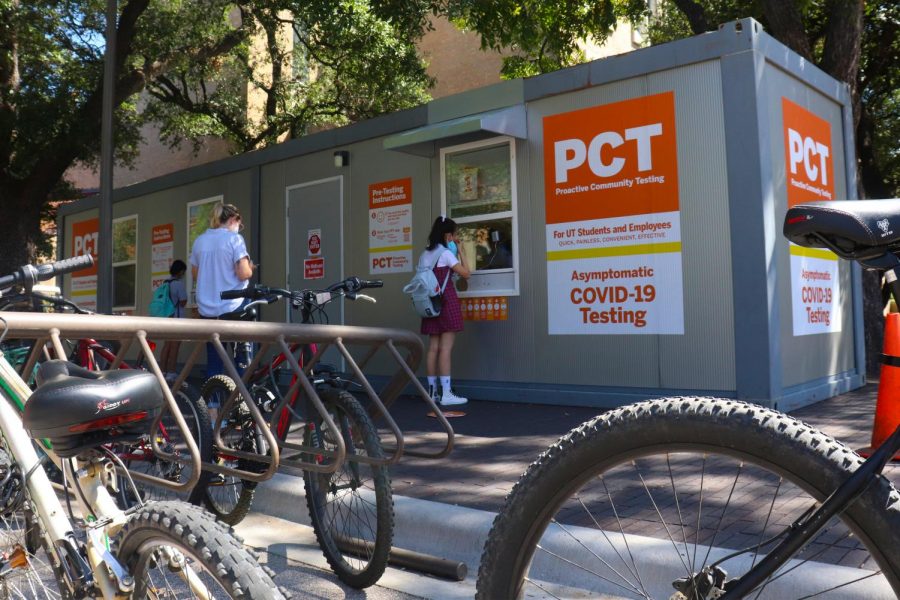University Health Services expands walk-up COVID-19 testing on campus
October 10, 2021
University Health Services introduced roving proactive community testing sites Sept. 22, which provide walk-up COVID-19 tests on campus and results within hours.
The roving sites rotate through various locations on campus during the week. The tests are staff-administered, take between five to 10 minutes and send results within two hours, according to Jessica Klima, director of the PCT program. An external vendor runs the sites and has offered to provide up to 2,000 tests per day across the sites for students and faculty, Klima said.
At the beginning of the semester, UHS urged students to get tested once or twice per week through PCT but only had the capacity for 15,000 tests per week.
Klima said the new sites are spread around campus to provide convenience for as many students as possible. She said multiple colleges and groups have requested more access and availability for walk-up sites, and this initiative is an effort to meet those requests.
“I think anything that helps increase testing and participation and testing can only be a good thing for the University,” Klima said. “It can help us get a better idea of the prevalence of disease on campus and just provide everyone on campus peace of mind.”
Andrey Ivanov, music performance graduate student, said he gets tested twice a week at the walk-up site at the Doty Fine Arts building. Ivanov said students may have to share instruments, be in large groups and take off their masks to play their instruments, which can cause the virus to spread more easily and increase the need for consistent testing.
“The location is good because it’s near the building of the School of Music, and I believe it’s (good) not only for me because many musicians need to engage and take their mask off to play or sing and have to get tested every week,” Ivanov said.
Jenna Ferguson, health promotion and behavioral science sophomore, said she gets tested every two weeks at the Texas Union. Ferguson said when she goes to high-density areas like Austin City Limits or is potentially exposed, she gets tested.
“I think they’re doing a really good job because it’s so quick, and it’s so convenient, and it’s so widespread that if you need to get tested or if you think you need to get tested, you have the option,” Ferguson said. “It’s easily accessible, which definitely motivates people to get tested more.”



